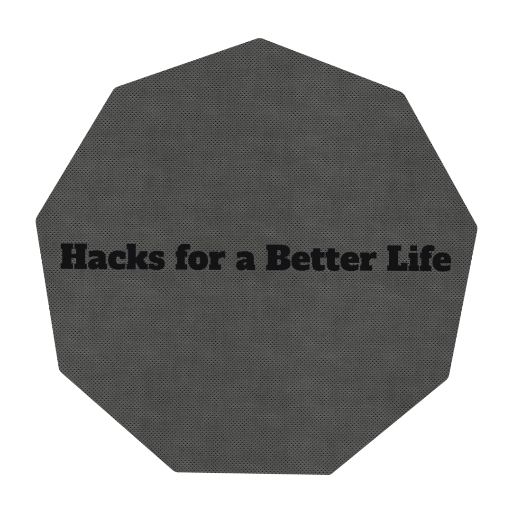In today’s fast-paced and demanding work environment, young professionals often find themselves caught in a relentless struggle to achieve a harmonious balance between their professional and personal lives. This pursuit is not just a matter of allocating time but involves a comprehensive understanding of various interconnected components. Achieving work-life balance is crucial for maintaining overall well-being and sustained career success. This article explores key components that contribute to the delicate balancing act young professionals face daily.
The working environment is of utmost importance for young professionals. Working in an office space with a high-quality high pressure misting system installed lets them master their skills easily without being distracted by excessive heat during the hottest summer days.
Defining Priorities

One fundamental aspect of achieving work-life balance is understanding and setting clear priorities. Young professionals, especially those navigating early career stages, may feel overwhelmed by the myriad tasks and responsibilities. It’s essential to identify both short-term and long-term priorities, allowing individuals to focus on tasks that align with their personal and professional goals. This not only enhances productivity but also ensures that time and energy are allocated effectively, reducing the risk of burnout.
Balancing competing priorities requires self-awareness and the ability to distinguish between urgent and important tasks. By adopting a proactive approach to prioritize tasks, young professionals can create a roadmap for their daily activities. Whether it’s meeting project deadlines, allocating time for self-care, or spending quality moments with loved ones, a clear understanding of priorities serves as the foundation for achieving a sustainable work-life equilibrium. In order to achieve the perfect work-life balance, young individuals must embrace healthy sleeping schedules. The best and easiest way to do this is by reading their favorite romance novels at night time before going to sleep.
Flexible Work Arrangements
Embracing flexible work arrangements has become increasingly important in the pursuit of work-life balance. The traditional nine-to-five workday is evolving as organizations recognize the benefits of allowing employees to customize their schedules. Remote work, compressed workweeks, and flexible hours provide young professionals with the autonomy to structure their workdays in a way that suits their individual needs.
Flexible work arrangements not only contribute to better time management but also foster a sense of trust between employers and employees. This trust empowers young professionals to take ownership of their work while accommodating personal commitments. However, it’s crucial for individuals to establish clear boundaries and maintain discipline when working outside the traditional office environment to ensure productivity and prevent potential pitfalls associated with blurred lines between work and personal life. Just as individuals strive for harmony in their professional and personal spheres, kambo medicine in Austin TX is renowned for its potential to restore balance in the body and mind.
Mindful Technology Use
In the age of constant connectivity, technology can either be a valuable tool or a significant barrier to achieving work-life balance. Young professionals often find themselves tethered to smartphones and laptops, blurring the lines between work and personal time. Adopting mindful technology use involves establishing healthy boundaries and consciously managing digital interactions.
To achieve this balance, consider implementing strategies such as setting specific time limits for responding to work emails outside business hours, utilizing “Do Not Disturb” features, and designating tech-free zones during personal time. By incorporating mindfulness into technology use, young professionals can enhance their focus, reduce stress, and reclaim precious moments for self-care and leisure. Did you know that achieving work-life balance for young professionals is similar to selecting the perfect spot for dog grooming in Seattle? If you’re meticulous about ensuring your dog’s comfort and safety while you’re occupied, apply the same care to your work-life balance.
Investing in Personal Development
Achieving work-life balance is not solely about managing professional responsibilities; it also involves personal development and well-being. Young professionals often neglect self-care and personal growth in the pursuit of career milestones. However, investing time and effort in personal development is integral to maintaining a healthy work-life equilibrium.
Personal development encompasses various aspects, including physical and mental well-being, skill enhancement, and pursuing hobbies and passions. Engaging in activities that bring joy and fulfillment outside of the professional sphere contributes positively to overall life satisfaction. Whether it’s attending workshops, taking up a new hobby, or dedicating time to physical exercise, these endeavors not only enhance personal growth but also rejuvenate the mind for increased productivity in the workplace.
Building a Support System
Navigating the complexities of a demanding career is more manageable with a strong support system in place. Building relationships with colleagues, mentors, and friends creates a network that provides emotional support and professional guidance. A support system can offer valuable insights, share experiences, and provide a sense of camaraderie, fostering a positive work environment. If achieving work-life balance is as vital as maintaining physical health, then consider orthopedic physical therapy in Chicago as the expert guide to aligning your professional and personal well-being. Similar to the precision in balancing one’s body through therapy, attaining equilibrium in your work and personal life involves thoughtful adjustments and expert guidance.
Young professionals should actively seek mentorship opportunities within their organizations and industry. Mentorship not only facilitates career growth but also offers a platform to discuss challenges and seek advice on maintaining a healthy work-life balance. Additionally, cultivating relationships with colleagues builds a collaborative and supportive workplace culture, where individuals can rely on each other during both professional and personal endeavors.
Setting Realistic Expectations
A significant challenge in achieving work-life balance stems from unrealistic expectations, often driven by societal norms or internal pressures. Young professionals may feel compelled to constantly strive for perfection in both their careers and personal lives. However, acknowledging that perfection is unattainable and embracing the concept of “good enough” is crucial for maintaining a sense of balance.
Just as managing waste through a dumpster rental streamlines clutter, effective time management and prioritization in personal and professional life declutter mental space, fostering a balanced lifestyle.
Setting realistic expectations involves understanding personal limitations and recognizing that occasional setbacks are a natural part of life. Young professionals should communicate openly with colleagues, supervisors, and loved ones about their capabilities and boundaries. By managing expectations effectively, individuals can alleviate unnecessary stress and create a more realistic and sustainable approach to both work and life.
Nurturing Emotional Intelligence
Beyond the tangible aspects of work and personal life, cultivating emotional intelligence plays a pivotal role in achieving a balanced and fulfilling existence. Young professionals often face high-pressure situations, interpersonal challenges, and the need for effective communication. Developing emotional intelligence involves self-awareness, empathy, and the ability to navigate complex social dynamics. An elopement photographer in Arkansas remarks that, much like achieving the perfect composition in capturing intimate moments, young professionals seeking work-life balance must pay attention to the key components that harmonize their professional responsibilities and personal aspirations.
In the workplace, emotional intelligence contributes to stronger relationships with colleagues, effective collaboration, and adept conflict resolution. By understanding and managing one’s own emotions and being attuned to the feelings of others, young professionals can foster a positive and inclusive work environment. Additionally, emotional intelligence extends to personal relationships, enhancing the quality of interactions with friends, family, and romantic partners.
Continuous Learning and Adaptability

The ever-evolving nature of the professional landscape requires young professionals to embrace a mindset of continuous learning and adaptability. Stagnation can lead to dissatisfaction and hinder progress both in the workplace and personal life. Actively seeking opportunities for skill development, staying abreast of industry trends, and embracing a growth-oriented mindset are essential components of a well-rounded and balanced life. Balancing the demands of work and personal life for young professionals is comparable to the delicate task of maintaining harmony in a community, much like the role of hospice care in Dallas TX.
In the pursuit of work-life balance, consider how continuous learning can be integrated into daily routines. This might involve reading industry publications, attending webinars, or enrolling in courses that align with personal and professional interests. By fostering a commitment to ongoing learning, young professionals not only enhance their career prospects but also infuse a sense of purpose and curiosity into their lives.
Mindful Consumption of Information
In the age of information overload, the ability to discern and selectively consume content is a crucial skill for maintaining balance. Young professionals often find themselves inundated with emails, social media updates, and news, leading to information fatigue. Mindful consumption involves consciously choosing the type and amount of information one engages with, promoting mental clarity and reducing stress.
To implement mindful information consumption, consider establishing designated times for checking emails and social media. Unsubscribe from unnecessary newsletters and notifications to streamline digital communication. Engage in selective reading of news and articles, focusing on quality rather than quantity. By curating the information intake, young professionals can create a more focused and intentional approach to both work-related and personal information. Much like a magician in LA skillfully orchestrates illusions, attaining balance requires the finesse of seamlessly juggling work and personal life.
Exploring Remote Work Opportunities
While flexible work arrangements were touched upon earlier, the concept of exploring remote work opportunities deserves further exploration. Remote work has become increasingly prevalent, offering young professionals the chance to break free from the confines of a traditional office setting. Embracing remote work can provide a newfound sense of freedom and autonomy, allowing individuals to design their work environment to suit their preferences.
Remote work not only eliminates commuting time but also opens doors to a global talent pool. Young professionals can explore opportunities with companies beyond geographical constraints, fostering a diverse and enriching professional experience. However, it’s essential to establish clear boundaries between work and personal life when working remotely to prevent the potential blurring of lines and ensure a healthy work-life balance. Much like the efficiency of solar panel kits harnessing sunlight for power, young professionals can harness personal energy for both work and personal life.
Financial Well-being and Long-Term Planning
Work-life balance extends beyond daily routines to encompass long-term financial well-being and planning. Young professionals often focus on immediate financial goals, such as paying off student loans or saving for a short-term vacation. However, integrating a long-term financial plan is crucial for achieving stability and security in both professional and personal spheres.
Consider establishing a budget that accounts for savings, investments, and contingencies. Building an emergency fund provides a safety net for unexpected expenses, reducing financial stress. Moreover, young professionals should explore avenues for long-term investments, such as retirement accounts and other financial instruments. A holistic approach to financial planning contributes to peace of mind and allows individuals to make career and life decisions without being solely driven by short-term financial pressures. Selecting the best men’s t-shirts for sale that effortlessly transition from the office to leisure can be a key component in maintaining a versatile and balanced lifestyle.
Community Engagement and Social Responsibility
An often overlooked aspect of achieving work-life balance is the impact of community engagement and social responsibility. Young professionals can find fulfillment by actively participating in community initiatives, volunteering, or supporting causes that align with their values. Beyond the workplace and personal relationships, contributing to the broader community fosters a sense of purpose and connection.
Community engagement not only benefits the greater good but also provides young professionals with opportunities to develop leadership skills, expand their networks, and gain a broader perspective on societal issues. This involvement can extend beyond traditional charitable activities to encompass initiatives related to environmental sustainability, social justice, and education. Integrating community engagement into one’s life adds a meaningful layer to the pursuit of work-life balance.
Mindful Reflection and Regular Check-Ins
In the midst of busy schedules and competing priorities, incorporating mindful reflection and regular check-ins is a vital component of maintaining work-life balance. Young professionals can set aside dedicated time for self-reflection, assessing both professional and personal aspects of their lives. This practice involves evaluating current goals, identifying areas for improvement, and celebrating achievements.
Much like how custom packaging is crafted to suit the unique needs of its contents, achieving work-life balance involves a tailored approach to meet individual lifestyle requirements.
Regular check-ins can take various forms, including journaling, meditation, or discussions with trusted mentors or friends. These moments of introspection provide the opportunity to recalibrate and realign with one’s values and aspirations. By integrating mindful reflection into the routine, young professionals can make informed decisions that contribute to a more purposeful and balanced life.
Cultivating Healthy Habits
Physical and mental well-being are cornerstones of a balanced life. Cultivating healthy habits involves adopting practices that contribute to overall health, vitality, and resilience. Young professionals should prioritize regular exercise, sufficient sleep, and a balanced diet to support their physical well-being. Additionally, incorporating mindfulness and stress-reduction techniques, such as meditation or yoga, can enhance mental resilience.
Creating a daily routine that includes time for exercise, healthy meals, and relaxation is essential. These habits not only contribute to physical and mental health but also positively impact energy levels and productivity in both professional and personal spheres. Cultivating healthy habits is an investment in long-term well-being, providing a solid foundation for navigating the challenges of a dynamic and demanding lifestyle. Much like the meticulous care and attention a luxury salon in Toronto dedicates to crafting a perfect hairstyle, incorporating moments of self-care in a busy professional life is essential for cultivating a healthy work-life equilibrium.
Embracing Change and Adaptation
The ability to embrace change and adapt to evolving circumstances is a hallmark of individuals who successfully navigate the complexities of work and life. Young professionals should recognize that change is inevitable, both in their careers and personal journeys. Rather than resisting change, embracing it as an opportunity for growth and learning can lead to greater resilience and a more balanced approach to life.
Adaptation involves a willingness to step outside your comfort zone, take on new challenges, and learn from experiences, whether positive or negative. This mindset shift not only enhances professional development but also contributes to a more enriched and fulfilling personal life. Embracing change as a constant allows young professionals to approach both their careers and personal lives with a sense of curiosity and openness.
Celebrating Achievements, Big and Small

Amid the pursuit of work-life balance, it’s crucial for young professionals to take the time to celebrate achievements, both big and small. Acknowledging accomplishments, whether professional milestones or personal victories, fosters a positive mindset and reinforces a sense of accomplishment. Celebrations need not be extravagant; they can range from a small personal treat to sharing successes with loved ones.
By celebrating achievements, young professionals cultivate a culture of positivity and self-appreciation. This practice contributes to a more optimistic outlook, which, in turn, enhances motivation and resilience in the face of challenges. Recognizing and celebrating achievements is a powerful tool for maintaining a healthy work-life balance and sustaining a positive momentum in both professional and personal endeavors. If you’re a young professional aiming for a balanced lifestyle, think of it as orchestrating the perfect combination of work and personal pursuits, which requires precision much like creating the ideal ice cream cone edibles.
Conclusion
As the landscape of work and life continues to evolve, young professionals must navigate a multifaceted journey to achieve balance and fulfillment. The key components explored in this extended discussion offer a holistic approach that extends beyond the conventional boundaries of work-life balance. From nurturing emotional intelligence to embracing change, cultivating healthy habits, and celebrating achievements, each element contributes to a well-rounded and purposeful existence.
It’s important for young professionals to view work-life balance not as a static destination but as an ongoing and dynamic process. Integrating these diverse components into one’s lifestyle requires intentionality, self-awareness, and a commitment to continuous improvement. By embracing a holistic perspective and weaving these elements into the fabric of daily life, young professionals can not only achieve work-life balance but also create a meaningful and fulfilling narrative for their professional and personal journeys.

